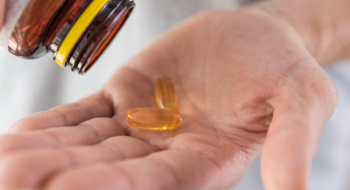Sunscreen can help protect you from sunburn, premature aging and skin cancer, so you should slather yourself in the highest SPF sunscreen you can find, right?
Not necessarily, says Dr. James Turek, a primary care physician at Tidelands Health Family Medicine at Garden City.
“To an extent, higher is better, but after that, you don’t get that much more protection,” he says.
For example, SPF 15 sunscreen will block about 93 percent of the sun’s ultraviolet B (UVB) radiation, whereas SPF 30 blocks up to 97 percent. From there, the rise is minimal, with SPF 50 only providing 1 percent more protection than SPF 30.
“A high SPF number can create a false sense of security and encourage people to stay out in the sun longer,” Dr. Turek says. “In reality, anything above SPF 50 only offers marginally more protection.”
In addition, SPF numbers only measure protection from UVB radiation. UVB is certainly important, said Dr. Turek, because UVB rays are significant contributors to skin cancer and are also the primary culprits behind sunburns.
However, ultraviolet A (UVA) rays can damage the skin, too, leading to premature aging and an increased risk for skin cancer, even if UVA rays don’t cause your skin to visually redden.
That’s why it’s important to choose a broad- or full-spectrum, sunscreen, which will help protect you from both UVB and UVA rays, he says.
Make sure to apply sunscreen at least 15 minutes before sun exposure, and reapply per the manufacturer’s instructions. You can apply sunscreen to children as young as age 6 months; keep younger children in the shade as much as possible.
The brand and type of sunscreen (cream, gel, lotion, spray) matter less than how you apply it. Studies have shown that people tend to apply too little sunscreen, so make sure you’re using generous amounts of the product. Proper application can be especially difficult with sprays.
Enjoying this story? It’s free to republish. Learn more.
Wearing cosmetics that contain sunscreen is a good way to help protect your skin on a day-to-day basis, Dr. Turek says, but you’ll want to use a stronger form of sunscreen if you plan to spend a lot of time outdoors.
The best protection from the sun, Dr. Turek says, is to simply stay out of it, especially between the hours of 10 a.m.-2 p.m., which is when the sun’s rays are most direct.
Consider arranging outdoor activities for early morning or late evening, wearing a broad-rimmed hat when out during the middle of the day and seeking overhead shelter, such as a covered porch or beach umbrella.
If you’ve gone without proper sun protection in the past, there’s no better time to start than now, he says. It’s also important to be screened regularly for skin cancer.

Dr. James Turek
Family Medicine Physician, Tidelands Health Family Medicine at Garden City
Bio
Dr. James Turek is a family medicine physician who practices at Tidelands Health Family Medicine at Garden City.
Learn MoreMedical Education
Education
Uniformed Services University of the Health Sciences
Internship
Wilford Hall USAF Medical Center
Meet the Expert
Dr. James Turek
Dr. James Turek is a family medicine physician who practices at Tidelands Health Family Medicine at Garden City.





